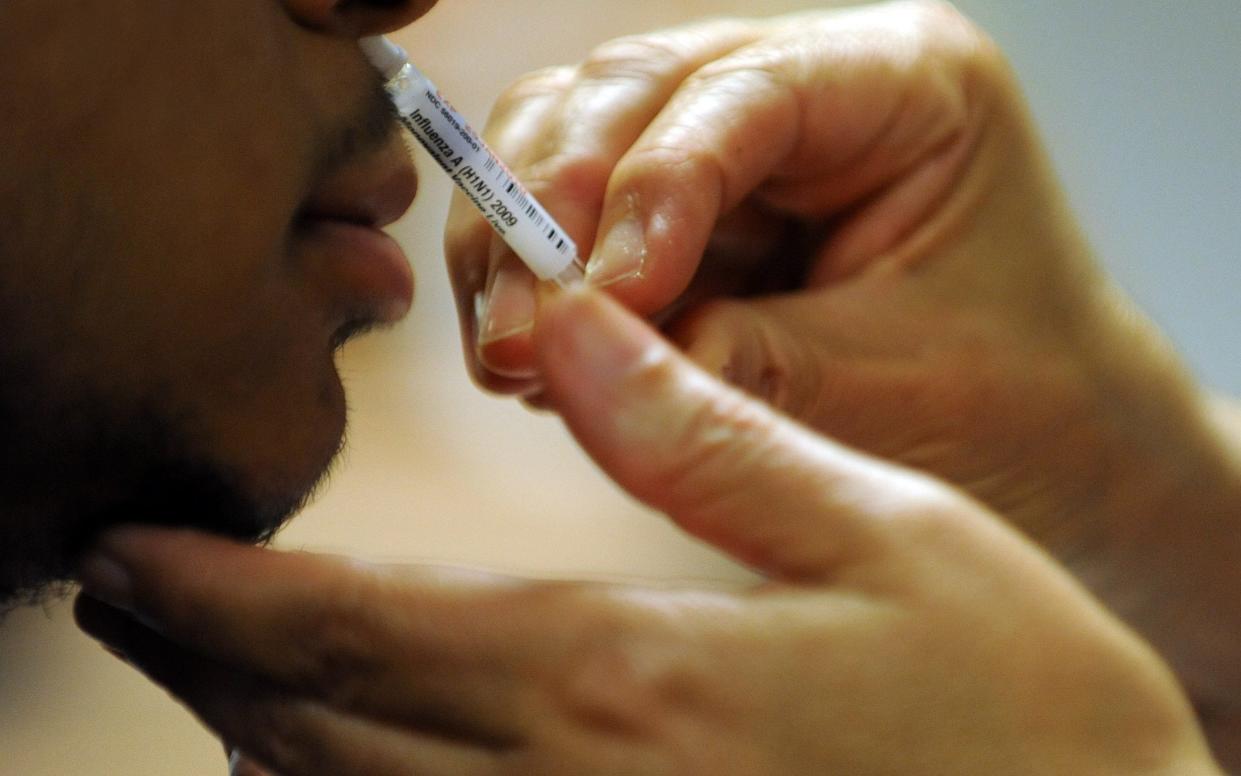Healthy humans will be deliberately infected with Covid in bid to develop nasal spray vaccine

Healthy volunteers are to be deliberately infected with diseases including Covid-19 in a bid to develop nasal spray vaccines that block the spread of coronaviruses.
The £44 million programme, led by Imperial College London, aims to develop next-generation vaccines that not only reduce disease severity, but also stop people from catching a virus in the first place.
“Vaccines that can stop transmission of a virus … are crucial to being able to end pandemics and epidemics swiftly,” said Dr Richard Hatchett, the chief executive of the Coalition for Epidemic Preparedness Innovations (Cepi), which is co-funding the five-year project.
“If we find a way to [block transmission] ... with the next generation of Covid-19 vaccines, for example, we could then dramatically reduce the circulation of the Sars-Cov-2 virus and hence limit its ability to generate dangerous new variants,” he added.
Experts believe that inhaling a vaccine directly into the nose and lungs, rather than via an injection into muscle tissue, could be the key to triggering mucosal immunity – the type of protection that is believed to block infections.
“Coronaviruses typically infect people through cells lining their nose, throat and lungs,” said Chris Chiu, a professor of Infectious Diseases at Imperial and principal investigator for the project – called MusiCC.
“Mucosal immunity generated at these surfaces is highly specialised … Since they directly act in the place that viruses enter and exit the body, they could be the key to developing vaccines that can block viruses from being able to spread from one person to another.”
The global project is also significant because it will be based on human challenge trials.
Prof Danny Altman, a professor of immunology at Imperial, told the Telegraph the programme is unique because of the “sheer momentum of human challenge studies, at scale, coming stage centre”.
These medical studies intentionally infect individuals with a particular disease, to test whether vaccines or drugs work. They also give scientists unique opportunities to track how an illness develops, including the relationship between a virus and the human immune system.
While they have been used for decades to better understand diseases such as malaria, flu, typhoid and cholera, there are tight regulations on when and how they can be deployed.
But last year, Imperial announced that the world’s first Covid-19 human challenge trial was safe in 36 young adults, laying the groundwork for their use more broadly. Now, the consortium will develop a trial that can be used concurrently in multiple sites worldwide.
MusiCC will test the potential of several nasal spray vaccines against betacoronaviruses – the pathogen family that includes Sars-Cov-2, Mers and several seasonal common cold viruses. Trials will take place across several sites, each involving small groups of young, healthy volunteers.
“This is highly significant considering that one of the major hurdles in the vaccine campaign against Covid was the failure in inducing mucosal immunity,” Prof Linfa Wang, from the Programme in Emerging Infectious Diseases at Duke-NUS Medical School in Singapore, which is part of the consortium, told The Telegraph.
“This model will also be highly important for other viruses of pandemic potential.”
Protect yourself and your family by learning more about Global Health Security


